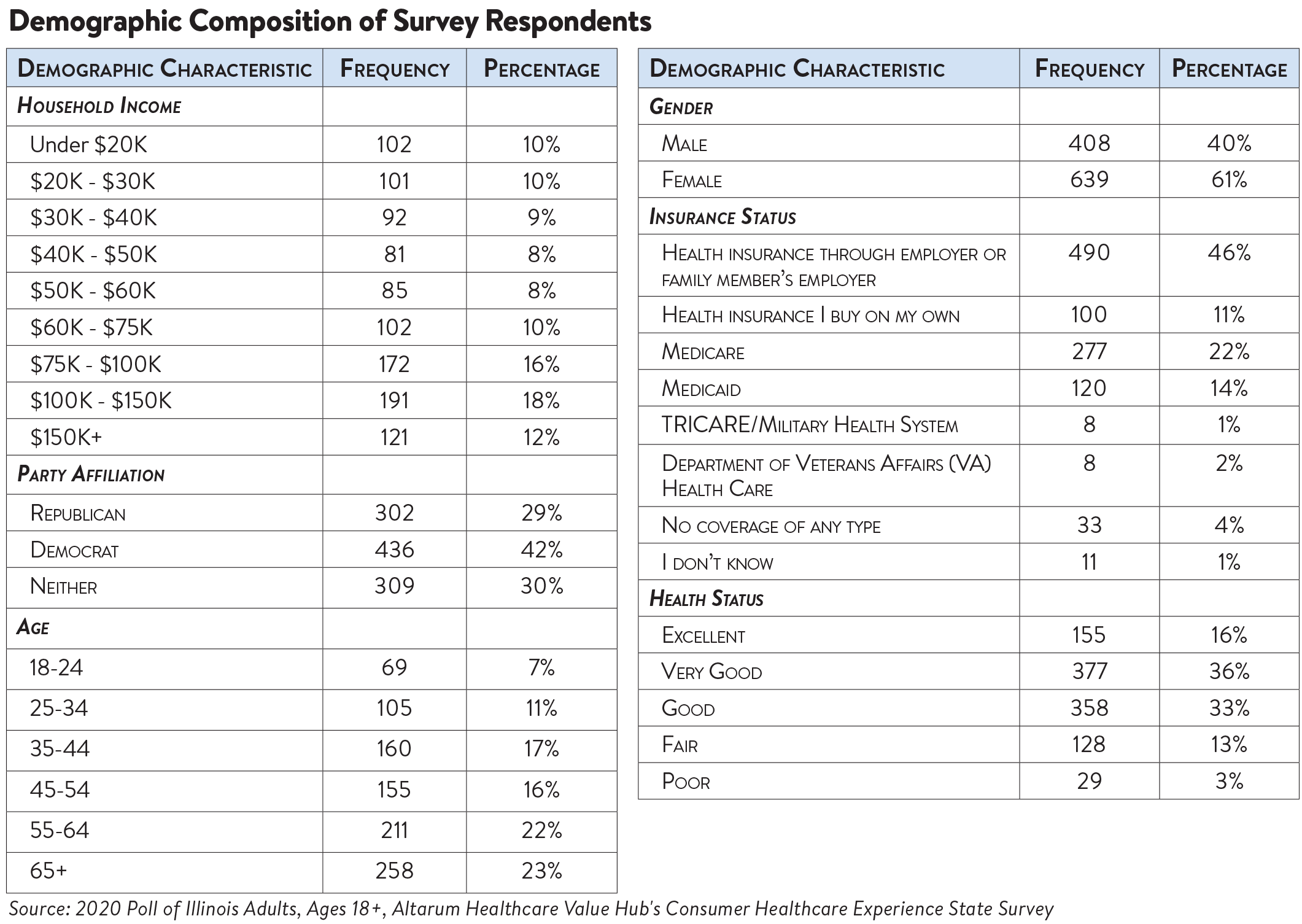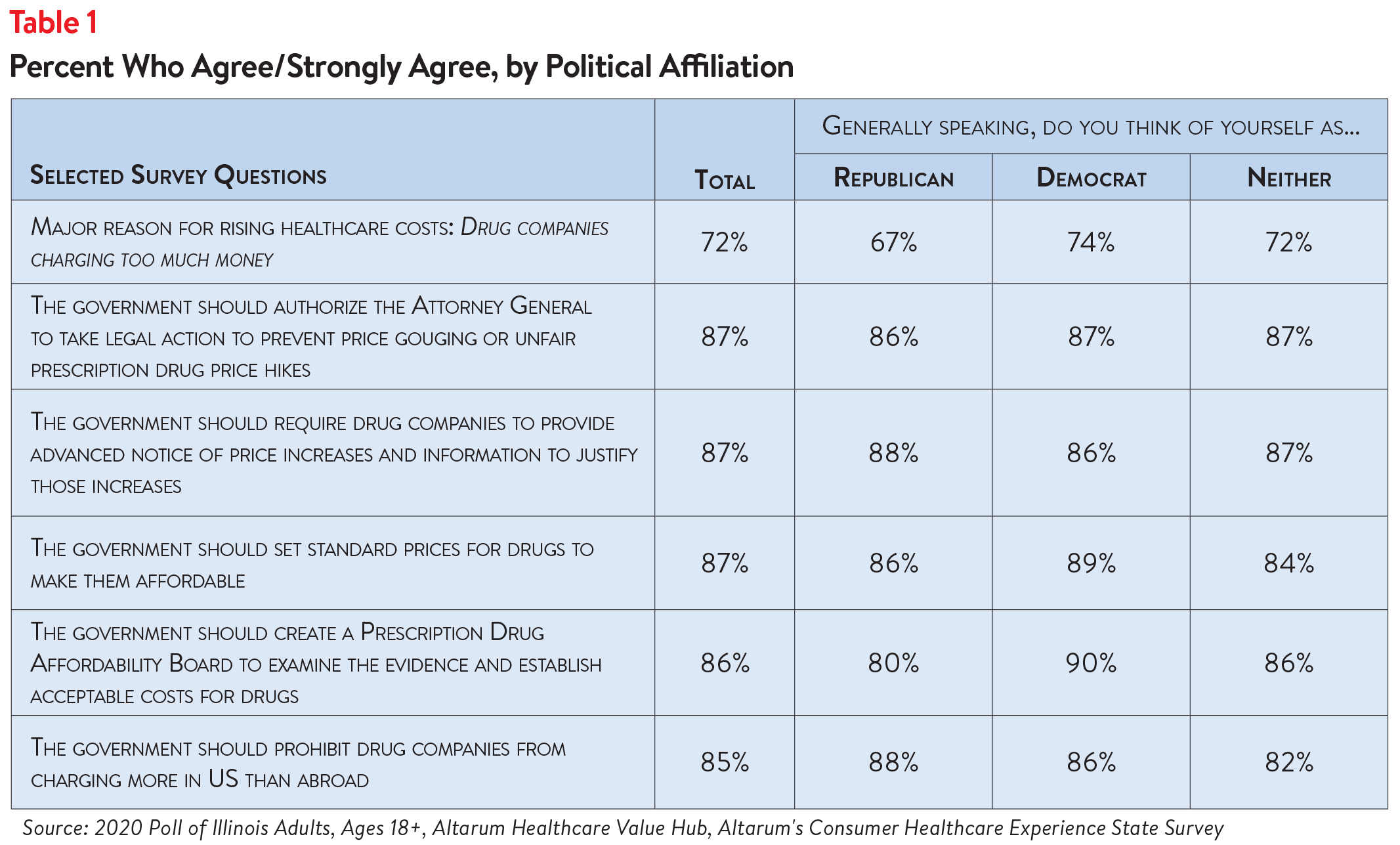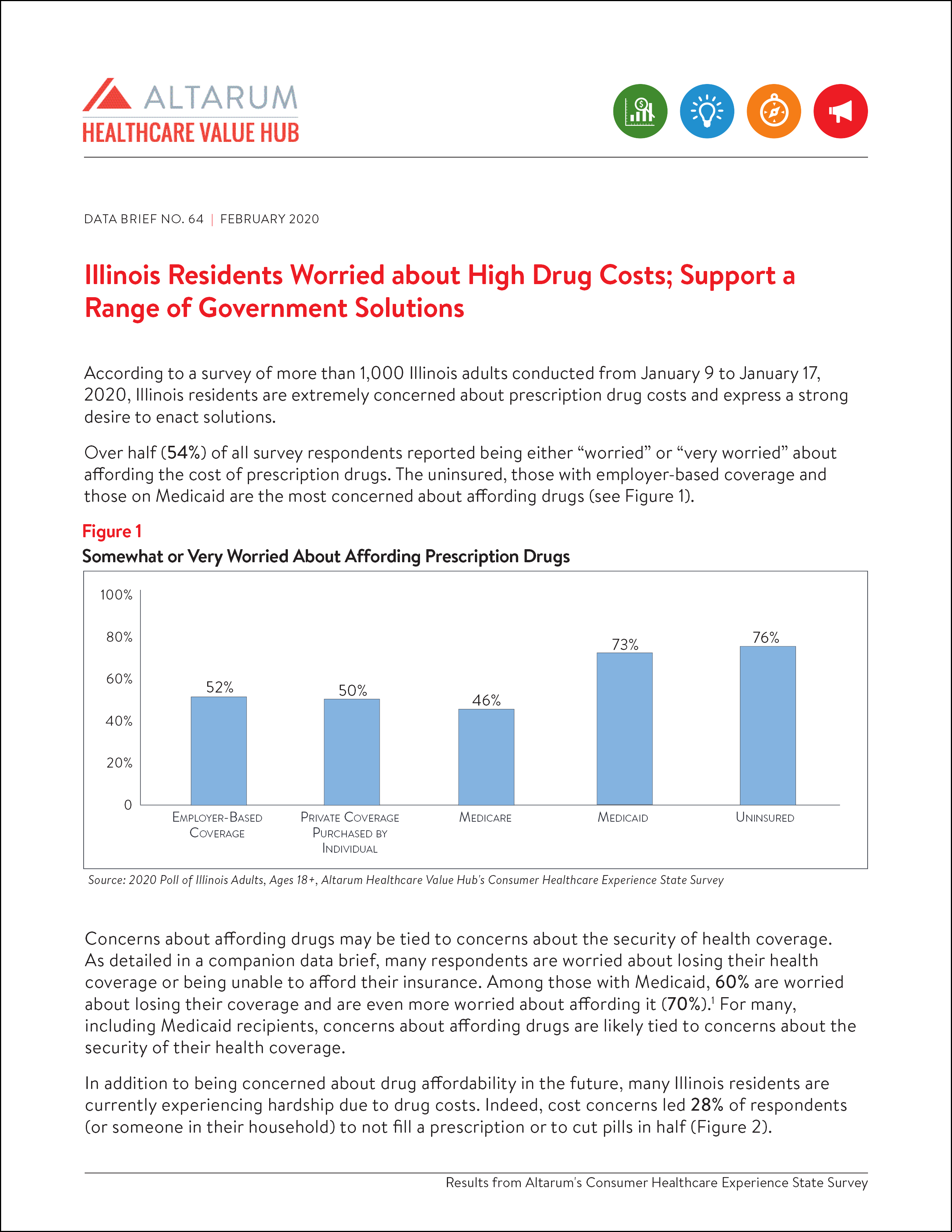Illinois Residents Worried about High Drug Costs; Support a Range of Government Solutions
According to a survey of more than 1,000 Illinois adults conducted from January 9 to January 17, 2020, Illinois residents are extremely concerned about prescription drug costs and express a strong desire to enact solutions.
Over half (54%) of all survey respondents reported being either “worried” or “very worried” about affording the cost of prescription drugs. The uninsured, those with employer-based coverage and those on Medicaid are the most concerned about affording drugs (see Figure 1).
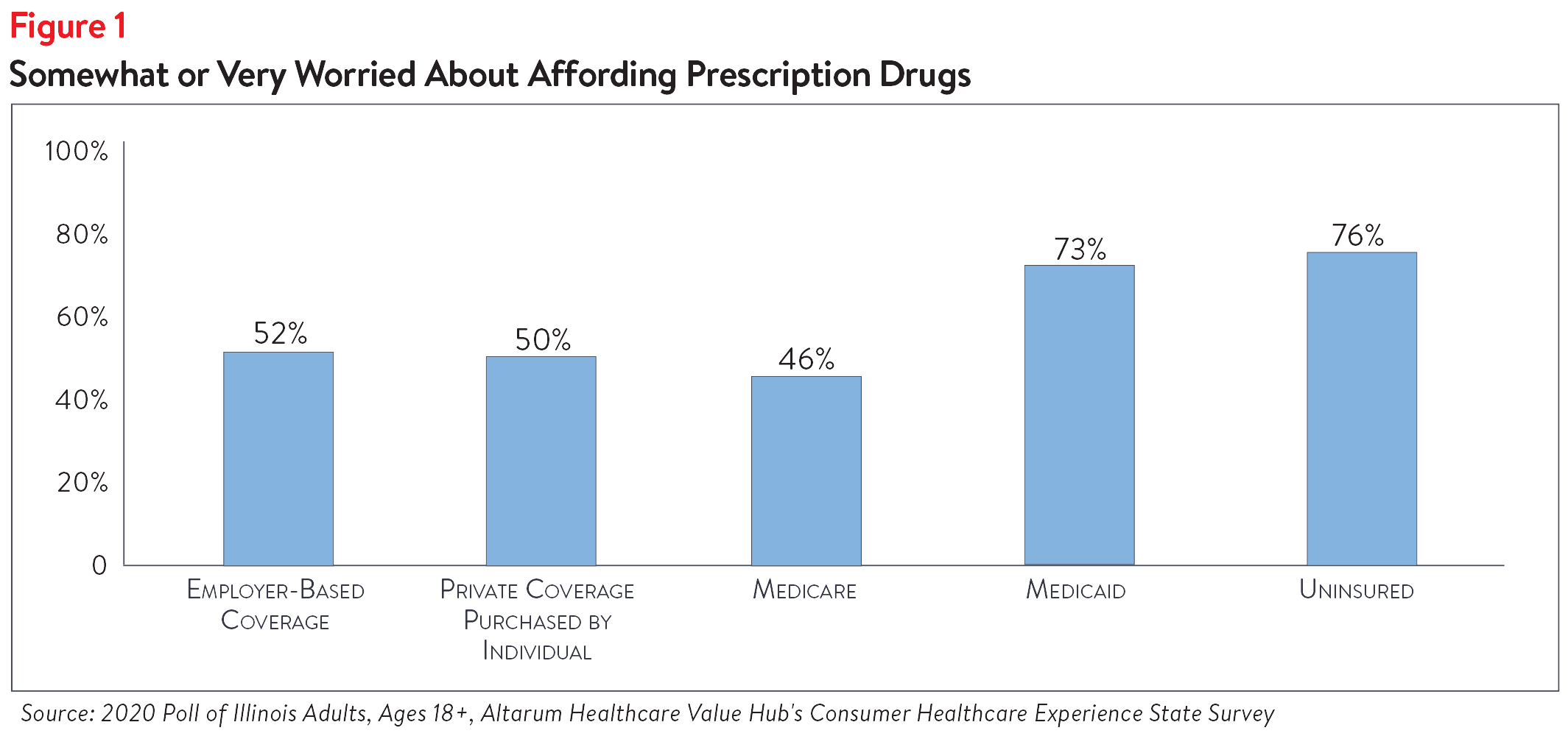
Concerns about affording drugs may be tied to concerns about the security of health coverage. As detailed in a companion data brief, many respondents are worried about losing their health coverage or being unable to afford their insurance. Among those with Medicaid, 60% are worried about losing their coverage and are even more worried about affording it (70%).1 For many, including Medicaid recipients, concerns about affording drugs are likely tied to concerns about the security of their health coverage.
In addition to being concerned about drug affordability in the future, many Illinois residents are currently experiencing hardship due to drug costs. Indeed, cost concerns led 28% of respondents (or someone in their household) to not fill a prescription or to cut pills in half (Figure 2).
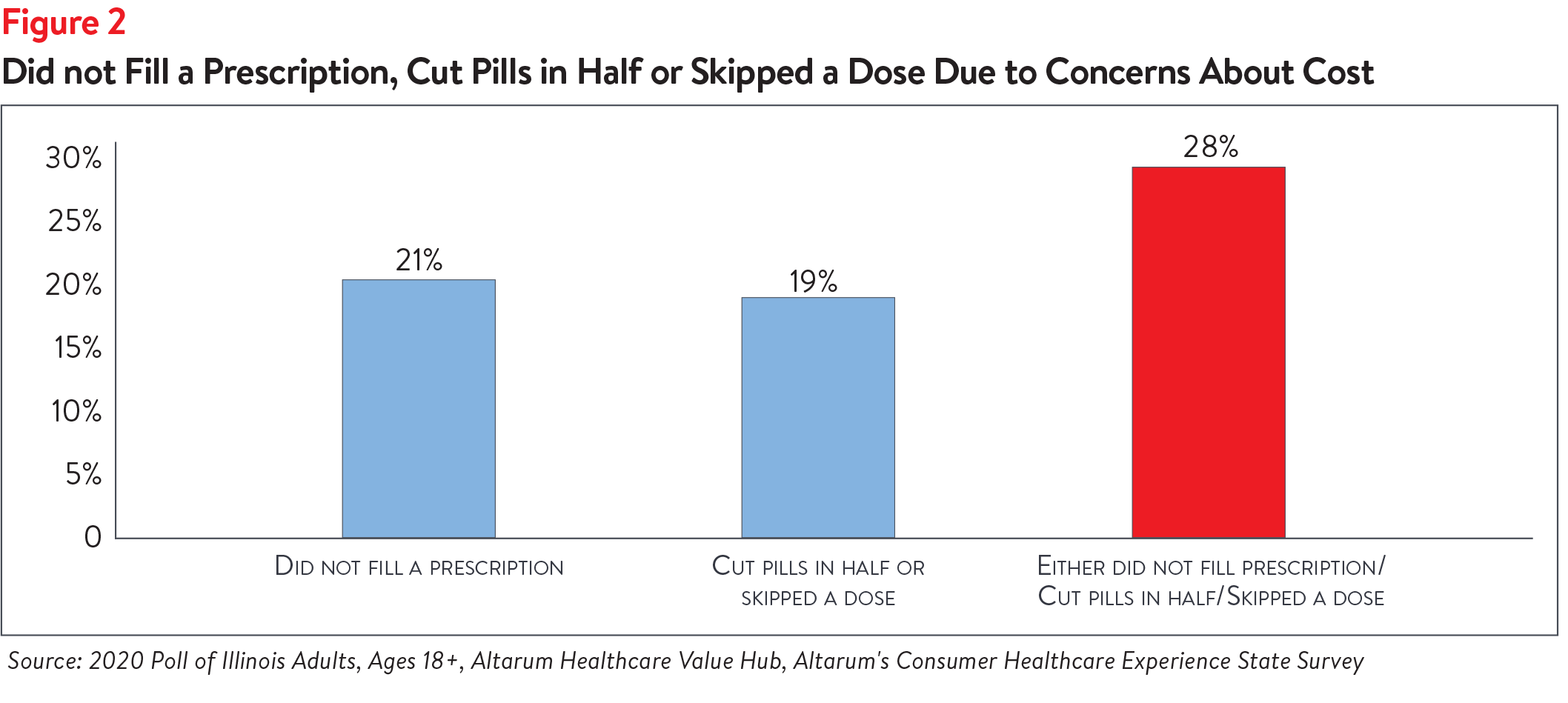
In light of these prescription drug cost concerns—as well as concern about high healthcare costs generally—it is not surprising that Illinois residents are extremely dissatisfied with the health system:
- Only 28% agree or strongly agree with the statement, “We have a great health care system in the U.S.”
- While 70% agree or strongly agree that, “the system needs to change.”
When given more than 20 options, the option cited most frequently as being a “major reason” for high healthcare costs were drug companies charging too much money:
- 72%—Drug companies charging too much money
- 66%—Hospitals charging too much money
- 62%—Insurance companies charging too much money
- 53%—Some well-known or large hospitals or doctor groups using their influence to get higher payments from insurance companies
When it comes to tackling high drug costs specifically, respondents endorsed a number of strategies:
- 87%—Authorize the Attorney General to take legal action to prevent price gouging or unfair prescription drug price hikes
- 87%—Require drug companies to provide advanced notice of price increases and information to justify those increases
- 87%—Set standard prices for drugs to make them affordable
- 86%—Create a Prescription Drug Affordability Board to examine the evidence and establish acceptable costs for drugs
- 85%—Prohibit drug companies from charging more in the U.S. than abroad
What is remarkable about the findings is high support for change regardless of the respondent’s political affiliation (see Table 1).
While Illinois residents are united in calling for a role for government in addressing high drug costs, they also see a role for themselves:
- 78% would switch from a brand to a generic if given the option
- 60% have tried to find out the cost of a drug beforehand
Note:
1. See: Healthcare Value Hub, Illinois Residents Struggle to Afford High Healthcare Costs; Support a Range of Government Solutions Across Party Lines, Data Brief No. 63 (February 2020). www.healthcarevaluehub.org/Illinois-2020-Healthcare-Survey/
Methodology
Altarum’s Consumer Healthcare Experience State Survey (CHESS) is designed to elicit respondents’ unbiased views on a wide range of health system issues, including confidence using the health system, financial burden, and views on fixes that might be needed.
The survey used a web panel from Dynata with a demographically balanced sample of 1,047 respondents who live in Illinois. The survey was conducted only in English and restricted to adults ages 18 and older. The cases were weighted for age, gender and income to be demographically representative of Illinois. The demographic composition of respondents was as follows.
